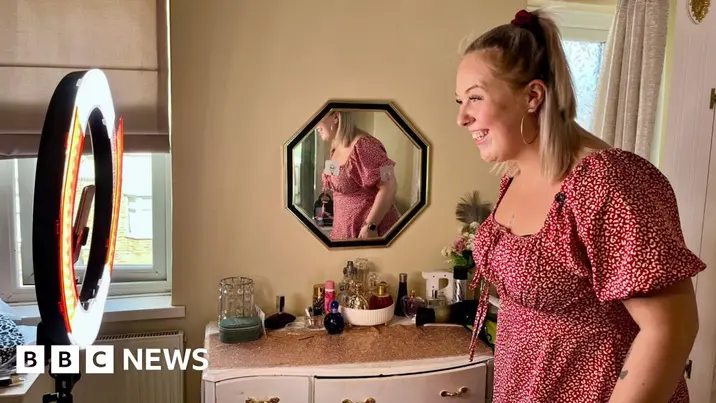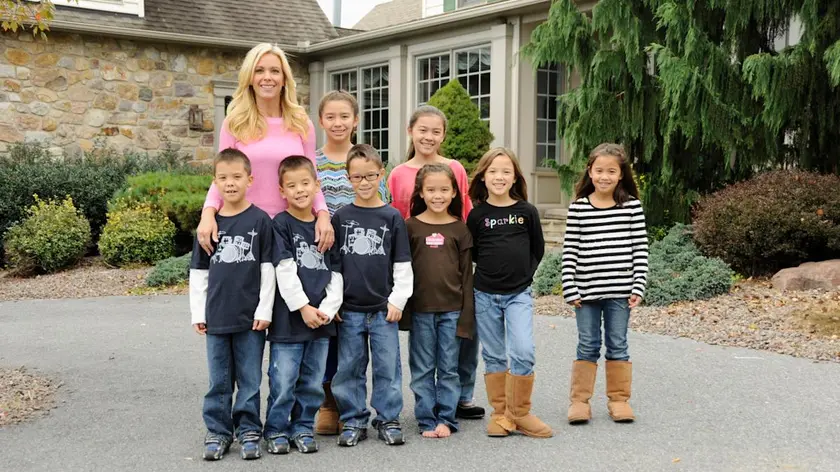T4K3.news
TikTok earnings lift a Leicester family
A mother clears debt and a couple grows a following by reviewing fashion on TikTok, showing opportunity and financial quirks.

A mother clears debt and a couple grows a following by reviewing fashion on TikTok, showing both opportunity and financial quirks.
TikTok earnings lift a Leicester family from debt to new plans
Roxanne Freeman, a 36-year-old from Leicester, paid off £13,000 in debt after turning to TikTok to review plus-size dresses. She started posting in February 2024 and saw commissions rise from £200 in the first week to £600 in the second month, eventually reaching up to £5,000 a month. Freeman has left her slimming consultant job and now relies on TikTok earnings to support her two sons and fund holidays. She says the income has been a turning point, though imposter feelings still linger.
Holly and Diego Hernandez, a couple with nearly 300,000 followers, also earn up to £5,000 a month by posting videos. They still work ordinary jobs—Holly as a nurse and Diego in medical supplies—and earn through the TikTok Creator Fund and licensing deals for songs in their videos. They formed a limited company and work with a management agency as their audience grows. The changes brought both opportunities and new pressures, including dealing with online trolls.
Industry voices point to a broader shift. Estelle Keeber, who built Immortal Monkey after charging for social media expertise, says influencer marketing is here to stay but requires time, hard work and smart branding. The UK context shows many people turning to social media as a source of income, and tax rules apply to all earnings. HMRC notes that income from online content must be reported if it exceeds a £1,000 allowance, underscoring that these creators are not outside the tax system.
Key Takeaways
"This has been the turning point for me; it has improved my confidence and my self-belief."
Roxanne Freeman on the personal impact of TikTok earnings
"Influencer marketing is here to stay because it's organic and trusted."
Estelle Keeber on the durability of influencer marketing
"Things like taxes came into play, so we ended up getting an accountant and becoming a limited company."
Holly Hernandez on tax planning and formalising income
"Sometimes imposter syndrome sneaks in and I worry, but you could lose any job tomorrow."
Roxanne Freeman on lingering fears
The stories in Leicester illustrate a growing trend: social platforms are becoming serious income channels for people outside traditional careers. That brings both promise and risk. On the upside, creators can turn a few hours of online work into meaningful family resources and even formal businesses. On the downside, there are tax complexities, accounting needs and a constant risk of online harassment as audiences grow. The shift also tests how society views work, income security and the idea of a career that lives on a screen rather than in a traditional office. As more families explore this path, policymakers and advisers will need to offer practical guidance to keep earnings fair and sustainable.
Highlights
- Turning likes into cash changes everything
- I never imagined I could pay off debt this way
- Taxes came into play and we needed an accountant
- Imposter syndrome is real even when success grows
Tax rules and online earnings risk
The rise of creator income creates tax and safety challenges. Without clear guidance, earnings can trigger unexpected tax bills and online harassment may increase as followings grow.
As online work becomes common, practical guidance on earnings and taxes will matter.
Enjoyed this? Let your friends know!
Related News

Vaccine injury spurs class action

Kate Gosselin returns to nursing after reality show earnings

Kardashian slams ICE raids on Instagram

OnlyFans model purchases new country home

Lil Tay returns to social media after death hoax

Jurassic World Rebirth earns 322.5 million worldwide

Jorge Costa passes away at 53

Schofield supported by friends after scandal
